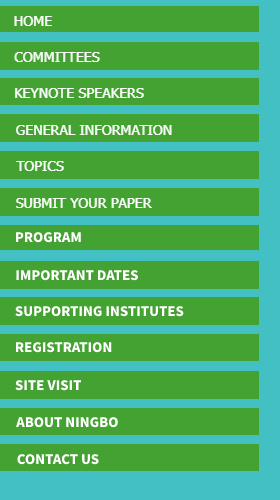

|
Topics Conference topics include, but not limited to:
Special Session Intelligent control and management of thermal and electric flows in electric vehicles Dr Quan Zhou, The University of Birmingham, Birmingham, UK, B15 2TT Dr Zhi Li, Zhejiang University, Hangzhou, China, 310027 Transportation electrification is the main solution to tackle the mounting climate change issues. Management of thermal and electric flows in electrified vehicles (EV) is critical to maximizing energy efficiency and maintaining safe and healthy vehicle operations. This would be achieved through 1) optimal design of thermal management systems including active cooling systems and waste heat recovery systems for batteries, power electronics, and electric motors; and 2) optimal control of battery management system, thermal management system, and powertrain energy management systems. Artificial intelligence (AI) has been demonstrated the strong capability of solving optimization problems, and further research into AI-based systems managing EV thermal and electric flows is necessary. The special session aims to collect state-of-the-art research on intelligent control and management of EV thermal and electric flows. We will invite 5-10 researchers around the world to submit their contributions and join the discussions on outlook and future research directions. Panel ADBI-ADB Session on Low-Carbon Cooling: Financing and Policies Summary Cohosted by the Asian Development Bank Institute and Asian Development Bank as part of the CEN2022 Applied Energy Symposium 2022, this session will spotlight new research on promoting climate-friendly cooling needs in developing Asian countries. The focus will be on viable policy and funding solutions. Objectives Highlight innovative policy and financial measures for enabling low-carbon cooling and investment Explain how these approaches could advance the Paris climate agreement and Sustainable Development Goals Target Participants Policy makers and experts from think tanks, universities, and other institutions, as well as post-graduate students and interested members of the public Output Identification of policies and financing solutions for addressing low-carbon cooling technology and funding gaps Greater understanding of implementation challenges and benefits for climate change mitigation and sustainable development Partners Asian Development Bank |
Copyright © 2022. All rights reserved www.applied-energy.org